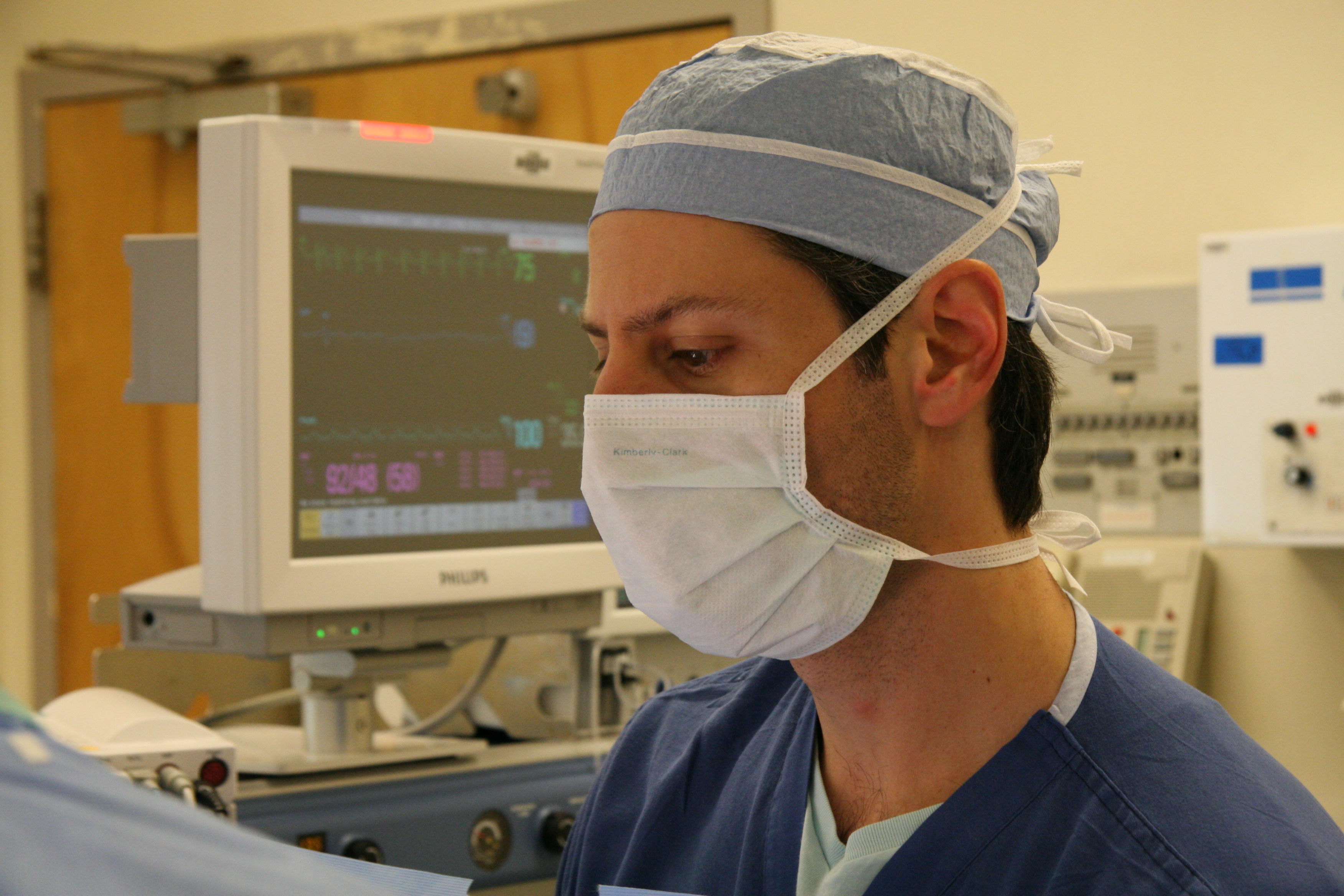Nursing school is never easy. It is a series of sleepless nights coupled with stressful exams. It is really no secret that becoming a full-fledged nurse in the field is no easy feat. Nursing school is a collection of years spent learning how to take care of people, and sometimes, it can get pretty frustrating.
What really sticks out as a particularly trying and sometimes even harsh part of nursing school is the clinical exposure and student hospital rotations. There are a lot of nursing students who just don’t get through this, which is why we want to share these tips.
Here are 15 foolproof ways to survive nursing clinicals.
1. Prepare emotionally
As with many other steps to be taken in nursing school, being emotionally prepared for nursing clinicals is very important. As a nurse, there will be situations within the hospital that can be very taxing on a very emotional level. A lot of nursing students go in the hospital and the clinic without much emotional preparation and end up having so much emotional stress that they either have diminished capacity to perform clinically or just stop being able to function as a nurse altogether.
2. Eat well

Eating well may seem to be a no-brainer but the sad part is that this is often overlooked and a lot of nursing students do tend to take their meals and nutrition for granted. This in turn leads to low energy levels that inhibit their abilities and even at times cause them to get physically ill.
Not being able to eat a healthy meal before going into shift can also cause mood swings and irritability, which obviously can be a bad thing to have as a nurse.
3. Schedule bathroom breaks
Another physical aspect of the nursing student that often gets overlooked is the bathroom break. Nursing shifts can span from a couple of hours to a whole day, and much of that time can be spent standing and walking and just generally being busy caring for patients. Because of this, going to the bathroom often gets sidelined and may in turn pose dire consequences for the nursing student.
So don’t forget. During your nursing clinicals, make sure to have regular bathroom breaks that don’t disrupt the hospital responsibilities of a nurse.
4. Have a good night’s sleep the night before
Though it may sometimes seem counterintuitive, a nurse who sleeps a lot is actually an efficient and effective nurse. A nurse who gets plenty of sleep before a shift usually has higher efficiency and even lower chances of making mistakes than those who stay up late before a shift. This is especially true when it comes to nursing students who hope to one day become great nurses.
5. Do light exercises/ stretches

It may not seem of much consequence when thinking in terms of clinical practice, but doing a bit of “warm up” can really come in handy since so much of the time, a nurse can be caught being in one uncomfortable posture after another.
This is especially true for those nursing students rotating in the operating room where assisting the clinical team can require them to stand up for hours on end. A simple stretch before going on duty could do wonders to help survive nursing school clinicals.
Also Read: 5 Minute Workout Exercises for Busy Nurses
6. Never forget proper body mechanics
There is a reason why nursing students get taught body mechanics early on in nursing school. This is because a lot of hospital injuries are related to poor body mechanics.
As nurses, being told to lift patients and to sometimes push stretchers are not really that uncommon. Remember to do proper mechanics so as to avoid injuries during your nursing clinicals.
7. Choose and prepare the proper uniform
What really makes a nurse identifiable within the hospital is the uniform. A clinical instructor will always have you wear your uniform properly. Creases on your uniform and dirty shoes will not reflect well on you.
Also Read: 10 Tips and Tricks to Keep Your Nursing Scrubs in Great Shape
8. Wash hands before procedures

It has always been pointed out all throughout nursing school that hand-washing is the foremost in preventing disease contraction. Not only is this for doctors and nurses but also for nursing students.
Proper hygiene is key to avoiding getting hospital-acquired diseases and would really help in keeping a nursing student healthy and well through the whole clinical experience.
9. Bring a hand sanitizer always
A nurse doesn’t always have access to faucets or have enough time to wash hands, especially in a particularly busy shift. This is why a nurse should always be ready and prepared with a hand sanitizer in his or her pocket.
Though nothing can and will ever replace hand-washing in preventing diseases and promoting proper hygiene, it still is important to be clean enough to care for other patients and being able to clean one’s hands as fast as possible.
10. Wear a Mask when necessary

Hospitals are really toxic places when it comes to bacteria and microbes. There are a lot of diseases that can be contracted only in hospitals and a lot of them are acquired through breathing in pathogens. Furthermore, there are a lot of chemicals in the hospital that should not be inhaled by a student.
This is why it is essential to bring around a mask during your shift. This is really important because not only will it protect the nursing student, it would also protect the patient in case the student has a cold or cough.
11. Read up beforehand
Whenever on clinical rotation, it cannot really be avoided that some doctors or senior nurses, aside from their clinical instructors, would want to test nursing students on their knowledge. As such, it is expected of nursing students to be able to show what they have learned thus far.
Reading up not only prepares you for sudden questions, but it would also minimize errors in caring for patients.
12. Bring nurses notes, and other necessary nursing equipment
Of course, despite being able to have read up on topics, it is also quite probable to miss and forget a few details here and there. This can be fixed by bringing nurses notes, small booklets, or handy phone apps that could help supplement nursing knowledge on the go.
Other necessary nursing equipment should also be on the nursing student at all times. Assessment tools like stethoscopes and thermometers are a nursing student’s great friends during clinical rotation and would really make the work a lot easier and more efficient.
Also Read: 27 Cutest Stuff For Nurses
13. Make as many friends as possible

When it comes to nurses, having a friendly disposition really goes a long way. In order to survive the nursing clinicals, making friends with the clinical staff and the patients is a sure way to go.
Befriending the medical team can ensure the student that someone will always have his or her back all throughout the shift, and that they will be ready to help out with difficult and confusing procedures. Being friends with the patients would also help establish a proper clinical rapport that would benefit the patient and ensure a comfortable nurse-patient relationship.
14. Focus on the task at hand but remember the schedule
Every nurse would gladly own up to the fact that a nurse’s schedule is always busy. In fact, nurses are some of the most overworked people inside the hospital. Also, the clinical setting is a place where time is of the essence and schedule is and must be considered of greatest importance. Sometimes nurses would always be too distracted about what to do next that they make mistakes with some procedures.
As a nursing student, learning to focus on the task at hand while keeping up with the schedule is a sure-fire way to ensure survival in the clincals.
15. Don’t let requirements get in the way of rendering nursing service
Most nursing schools would require paperwork to be submitted to the clinical instructor during clinical rotations. A lot of nursing students tend to focus solely on these paper works, and though they end up having high marks for submitting their requirements, they end up giving subpar nursing care for their patients.
A nursing student must find the delicate balance between keeping up with requirements and providing high quality nursing care for the patient.
Also Read: Top 10 Tips On How To Survive Nursing School
Being a nurse is no joke. Being in nursing school is a lot harder than some schools. There are a lot of stresses that comes with being in nursing school that some people would never understand, one of those is the clinical rotations. We hope that the above tips and advice will help you pull through nursing clinicals.
Good luck! Veteran nurses, what do you think of the above tips? If you have contrasting views or if we missed anything, we’d love to hear from you!



















